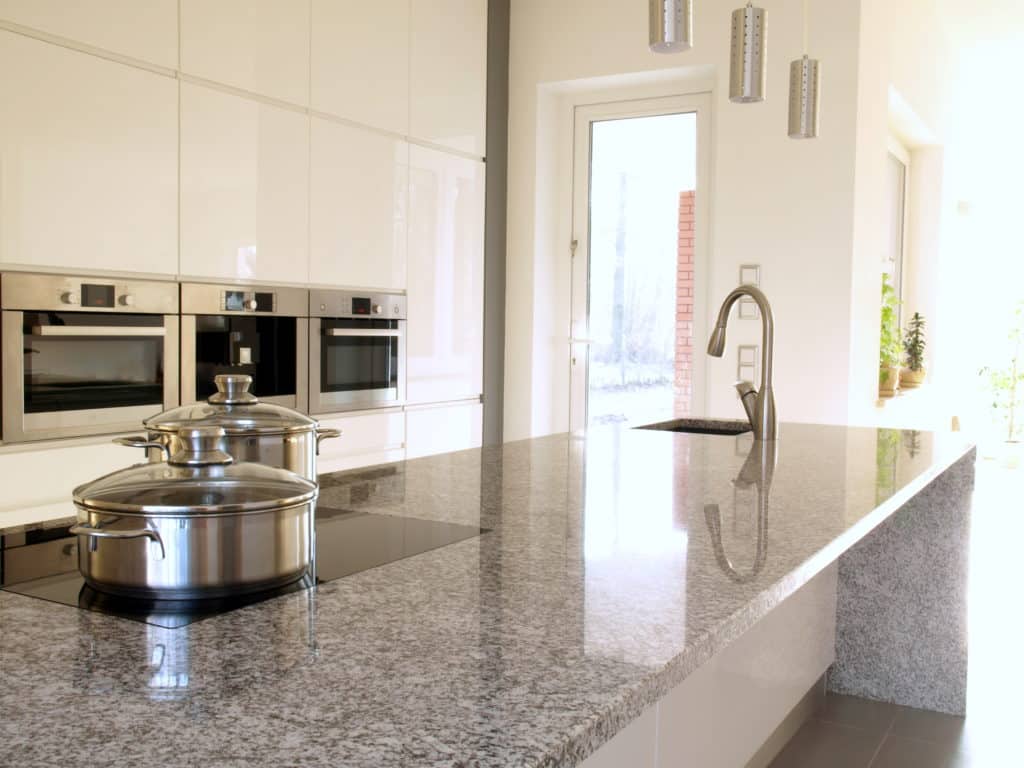Last month, we discussed a few countertop materials to choose from. Now we are discussing more of the options, so that you will have the most information possible to make the best decision for your situation. Understanding countertop materials will help you to choose superior countertops to meet all of your needs. Here are some more countertop materials that you should know about.
Quartzite
Quartzite is a popular countertop material that is comprised of natural stone. It is most similar to granite, though it is a harder material. Unfortunately, while the quartzite offers extra durability, the strength makes it harder to ship, mine, and fabricate. Quartzite tends to be tougher on tools during fabrication and can create a more brittle countertop material. This greatly increases the expense of quartzite. It is still important to understand the advantages of quartzite. They are able to provide some of the most unique and beautiful countertops. Quartzite also comes in a wide variety of colors and movements. Since quartzite is a natural stone, it is porous and needs to be sealed on a regular basis.
Marble
Marble is a classic material for countertops due to its beauty and elegance. However, it is important to keep in mind that marble materials can create a maintenance concern for kitchens. While marble is a fine choice for the bathrooms and less utilitarian spaces, it is generally not recommended for use in the kitchen areas. Marble is a rather soft material, which can cause it to be vulnerable to scratching and chipping. Additionally, marble is a substance that is calcium carbonate rich. This means that it will react to acids, such as vinegar, tomato sauce, and orange juice, which will cause it to etch. It also has the tendency to “bruise” when it is cut. This means that the material will splinter on a microscopic level, which can cause the appearance to become lighter.
Marble is a natural stone. This means that it is porous and will need to be sealed. It is important to remember that even sealed marble will be susceptible to staining and etching. Quartzite can be a more durable alternative to marble, especially because it can provide a similar appearance to marble.
Soapstone, Sandstone, and Travertine
These materials tend to be rarer and more exotic than other countertop materials. These materials are generally rather soft, which can reduce their suitability for use on the countertops. However, we will still fabricate and install these materials when desired. Soapstone is commonly used in laboratories because it is non-reactive and sanitary. However, it is important to keep in mind that soapstone is soft, expensive, and generally not well-suited for residential use. It easily shows knife marks and can dent or break easily.
Porcelain and Dekton
These countertop materials are man-made and are fairly recent developments for use in the countertop industry. Porcelain or Dekton materials are sold in extremely thin slabs. They can be extremely durable once they have been mounted to substrate, but tend to be rather brittle when supporting their own weight. A miter must be done on these countertop edges due to the thinness. It can be difficult to cover and repair after chipping. This is why our experts at Out of the Woods do not currently fabricate porcelain and Dekton countertops, though we may choose to do so when improvements to the material and fabrication process can be made.
These are just a few of the countertop options that are available to meet the needs of your property. We are also able to help with solid surface countertops, granite countertops, and quartz countertops. If you need assistance choosing the ideal countertop materials to meet all of your needs, contact our experts at Out of the Woods Custom Cabinetry for more information.


